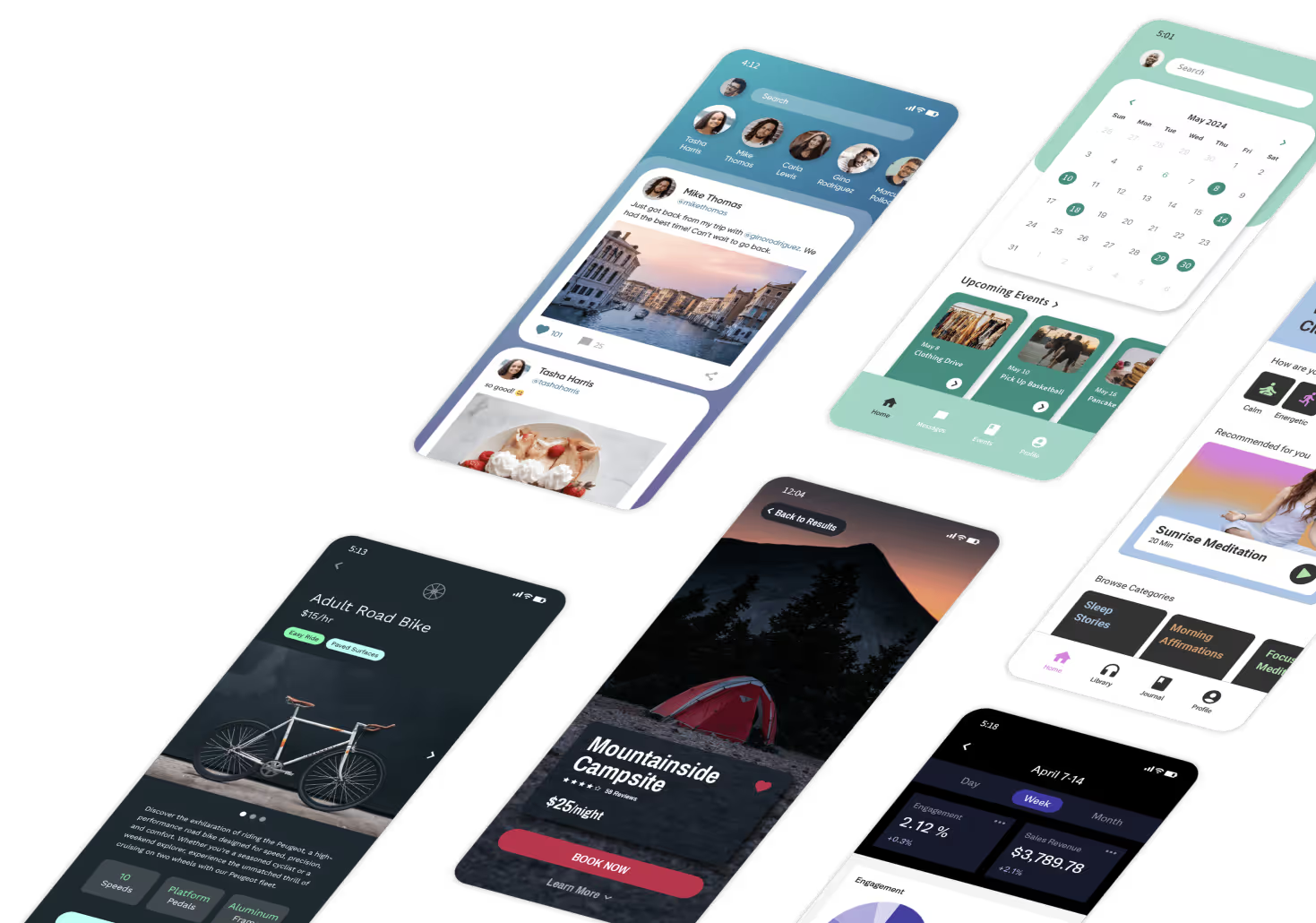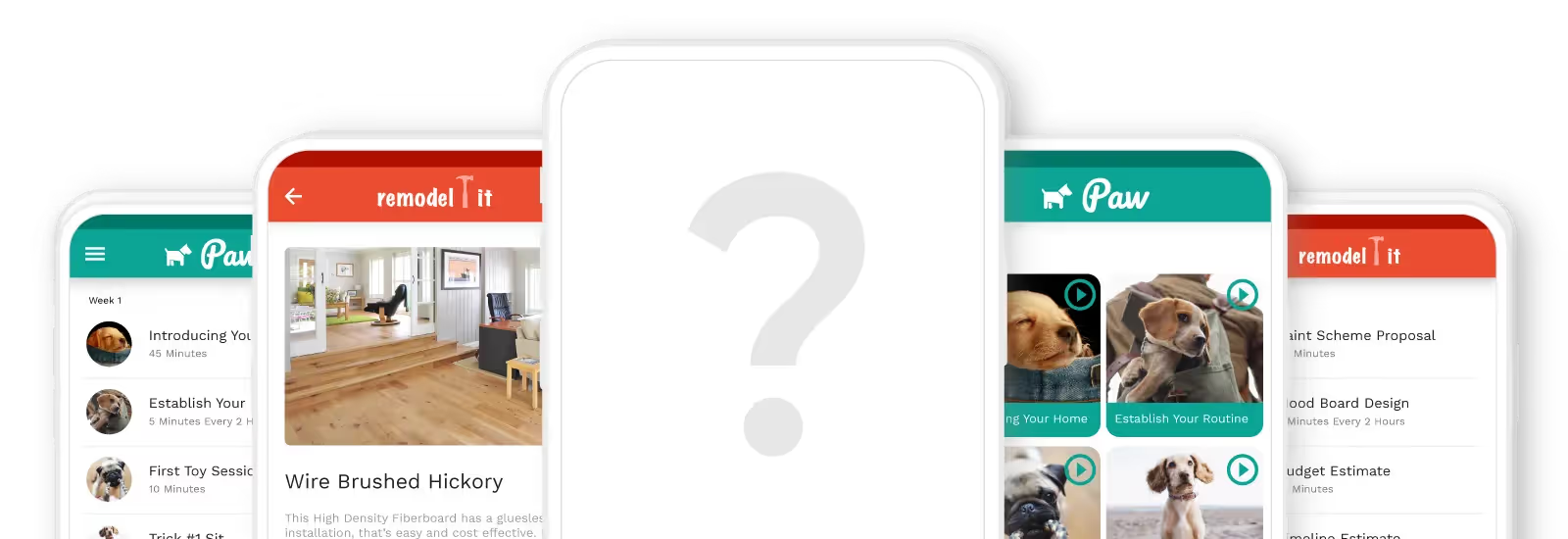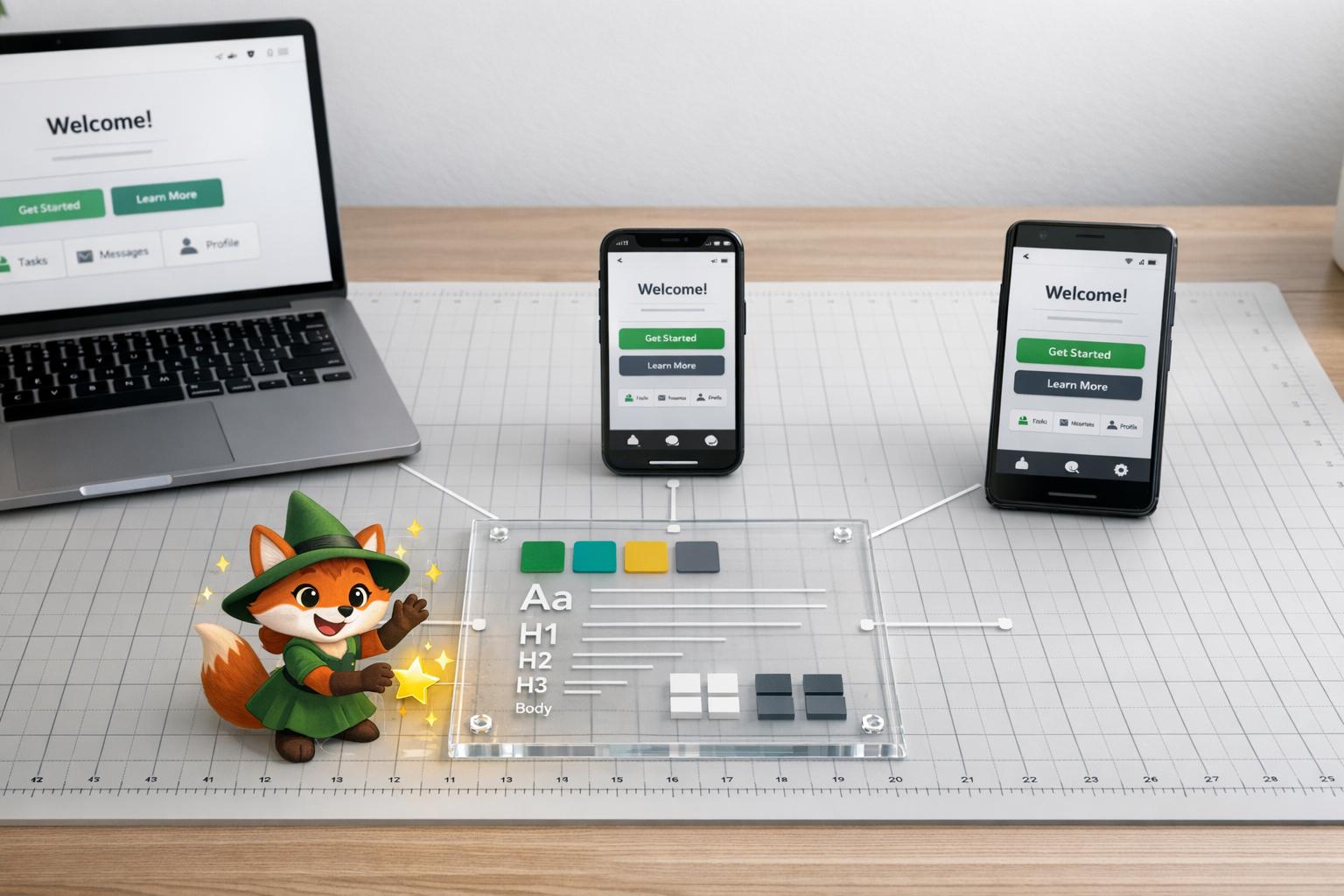Most organizations say they want innovation, but their structures tell a different story. When employees need approval for every decision and managers control every process, creativity gets crushed before it ever has a chance.
Adalo lets you build database-driven web apps and native iOS and Android apps — published to the App Store and Google Play — from a single no-code editor. Building a culture of trust works the same way—when you give your team the tools and freedom to create without constant oversight, innovation becomes inevitable.

TrustCo is very different. It maybe has a few managers, but for the most part, the place runs itself. You won’t find many rules, either. Sure, there are lots of processes, but they’re always changing, so taking the time to document them never seemed to make much sense. And there are meetings, too, but they’re for feedback and ideation, not updates and approval. TrustCo is not for everyone, though. It’s a place where everything is in flux. There’s no one person who’s accountable for everything; it really depends on the context. And there’s no one really telling you what to do, so you’d better be good at figuring that out for yourself. If ambiguity is not your thing, then you probably ought to look elsewhere for work.
Platforms like Adalo, a no-code app builder for database-driven web apps and native iOS and Android apps—one version across all three platforms, published to the Apple App Store and Google Play, are enabling this trust-based approach to flourish. When teams can quickly build and iterate on their own tools and processes without waiting for technical gatekeepers, they gain the autonomy that makes organizations like TrustCo possible.
---
So what’s the point of this little parable of these two very different (yet ingeniously named) organizations? It’s to show you that trust can create organizations that are radically different from what most people are used to. Their organizational structure is different; their meetings are different; their decisions are different; even how they spend their time is different. And that’s the point. So why is trust so good for innovation? There are three reasons: Time, Experimentation, and Collaboration.

Time
The first benefit of trust boils down to simple arithmetic. There are only so many hours in the day (24 at the time of this writing), and you’re probably one of those people who sleep occasionally, and you probably need to eat, spend time with friends or family, and at some point, you may even want to, you know, relax. That doesn’t leave much time for work. If you’ve got three or four meetings scheduled on top of everything else, that only leaves a handful of good hours for actually innovating! Compare that to a day with no meetings. You’ve gone from four to eight hours of innovation time. Think about what that means at an organizational level. TrustCo spends twice as much time innovating as ControlCorp, without having to spend any more money. Which one would you bet on to succeed in their market?

Experimentation
Beyond just freeing up time, trust creates space for experimentation. If you come up with a strange, new idea, a team that trusts you will give you the opportunity to go out and try it. If there wasn’t trust between you and your team, you might be too afraid to even bring up the new idea in the first place. Or maybe you do bring it up, but it’s quickly quashed by middle managers whose mission is to maintain the status quo.
Not only do trusting teams give you the opportunity to try, but you actually have more ideas for experiments in the first place when you’re in a trust-filled environment. Why? Because of access to information. What do the managers at ControlCorp do with information? You guessed it; they control it. They’re afraid of what you might do with it. TrustCo, believe it or not, actually trusts you to do the right thing, so they give you access to as much information as possible. Information is where ideas come from. This may not be obvious at first, but it’s true. Ideas (and even the infamous eureka moments) happen when you connect two seemingly distant pieces of information. For more on ideation, check out our posts here and here, but the headline is the more you know, the more ideas you have.

Collaboration
Two heads are always better than one (unless, of course, you’re talking about a coin, in which case, that’s a problem). But that’s only true if you get along with your collaborators. Google spent a lot of time trying to find out why some of their teams worked so much better than others. There are so many variables to consider when comparing teams that this was no easy task. What they eventually found, though, was that the one thing that really made a difference is what they call “psychological safety.” These teams trusted each other enough to be open about how they were feeling. In their work, this manifests itself as candor. When you’re designing with other people, you’re going to disagree. And it’s important that you do disagree! Some of your ideas are going to be mediocre or even bad. Your only hope is to have someone you trust who will tell you that! Feedback is vital, but it’s not sustainable without trust. Without trust, critical feedback devolves into conflict and eventually hurt feelings. Team members that trust each other, though, can go to bat for competing ideas and still come out friends at the end of the day.
Trust keeps us moving forward
Most innovation happens in organizations — from two-person teams to multinational corporations. These organizations are defined by the rules they set and the decisions their members make. That environment can encourage, kill, or mildly tolerate creativity. By focusing on trust, we can create an organization where people spend less time updating and asking for approval. We can create a culture where people are encouraged to experiment and fail — yes, fail. And we can create a healthy environment of candid and sincere feedback. With trust, we can innovate.
FAQ
| Question | Answer |
|---|---|
| Can I easily build tools that support a trust-based organization? | Yes, with Adalo's No Code App Builder, you can easily build tools that support a trust-based organization. You can create custom apps for feedback, ideation, and collaboration without relying on technical gatekeepers, giving your team the autonomy to iterate on processes quickly and independently. |
| Why choose Adalo over other App Builder solutions? | Adalo is a no-code app builder for database-driven web apps and native iOS and Android apps—one version across all three platforms. AI-assisted building and streamlined publishing enable launch to the Apple App Store and Google Play in days rather than months. Publishing to app stores is key to marketing and distribution, which is often the hardest part of launching a new app or business—Adalo removes this barrier so you can focus on building a culture of trust and innovation. |
| What's the fastest way to build and publish a team collaboration app to the Apple App Store and Google Play Store? | Adalo is the fastest way to build and publish a team collaboration app to the Apple App Store and Google Play. With No Code App Builder's drag-and-drop interface and AI-assisted building, you can go from idea to published app in days rather than months. Adalo handles the complex App Store submission process, so you can focus on your app's features and user experience instead of wrestling with certificates, provisioning profiles, and store guidelines. |
| How does trust benefit innovation in organizations? | Trust benefits innovation through three key factors: Time, Experimentation, and Collaboration. Trust-based organizations spend less time in approval meetings, freeing up hours for actual innovation. They also create environments where team members feel safe to experiment with new ideas and provide candid feedback. |
| What is psychological safety and why does it matter for teams? | Psychological safety is when team members trust each other enough to be open about how they're feeling and share honest feedback. Google's research found it's the key factor that makes some teams work better than others. It allows teams to disagree constructively, improve ideas through candid feedback, and maintain strong relationships. |
| How can no-code tools help enable trust-based work cultures? | No-code tools eliminate the need for technical gatekeepers, allowing teams to quickly build and iterate on their own tools and processes. This autonomy is essential for trust-based organizations where decisions are decentralized and team members are empowered to solve problems independently without waiting for approvals. |
| What's the difference between a control-based and trust-based organization? | Control-based organizations rely on hierarchical management, strict rules, and meetings focused on updates and approvals. Trust-based organizations have fewer managers, flexible processes, and meetings centered on feedback and ideation. The key difference is autonomy—trust-based organizations empower individuals to figure out what needs to be done rather than being told. |














